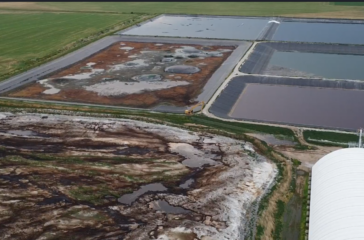Over 50 million Americans lack access to federal air quality data, study reveals
By Shannon Kelleher
More than half of US counties lack a single federally monitored station for keeping tabs on air quality, meaning more than 50 million Americans (about 15% of the population) live in “air quality monitoring deserts” that lack crucial data for protecting people from harmful pollutants, according to new research.
 EWG
EWG








